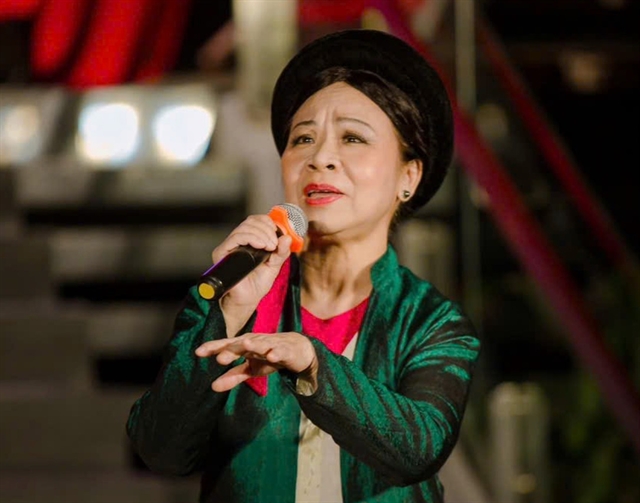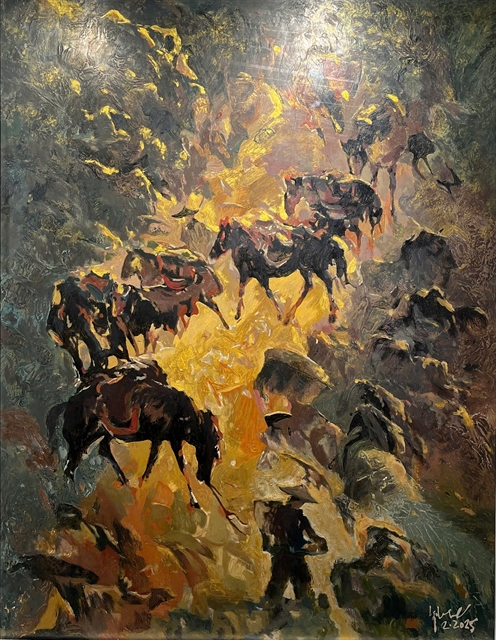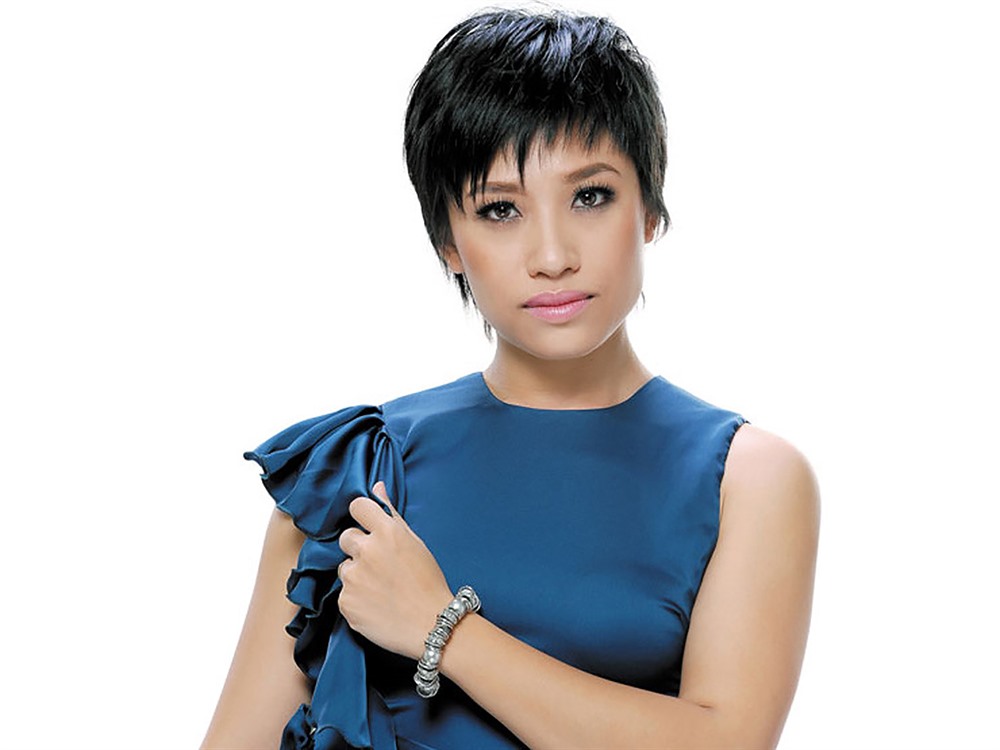 Inner Sanctum
Inner Sanctum

Forbes Vietnam published a list of the 50 most influential women in Việt Nam early this month to celebrate International Women’s Day. Meritorious Artist Trần Ly Ly was one of the representatives named in the field of media and creativity on the list. She has been acting-director of Việt Nam Opera & Ballet for a year.
 |
Forbes Vietnam published a list of the 50 most influential women in Việt Nam early this month to celebrate International Women’s Day. Meritorious Artist Trần Ly Ly was one of the representatives named in the field of media and creativity on the list. She has been acting-director of Việt Nam Opera & Ballet for a year. Nguyễn Thúy Bình talks to Trần Ly Ly
You were voted among the top 50 most influential women in Việt Nam 2019. Do you think the title will help you in your work?
I am very happy to be on Forbes Vietnam list. The honour has given me added responsibility to deserve everyone’s trust. This is a pleasant surprise for me and I feel proud. I’m still working hard of course, not just because of the title.
I knew about the Forbes Vietnam list but never really paid attention to it. I think it’s difficult to get onto this list because there are thousands of wonderful women in this country. I think the magazine honours businesswomen and scientists more than artists. That’s why I didn’t really give it much thought before.
I think being on this list is a good thing because people believe in me more. It is too soon to talk much about this, but first of all, I have to be more responsible.
Forbes’ criteria are based on the influence and extent of their positive impact on the community and society. Can you share what you have done to create a positive impact?
As the head of VNOB, I define my mission as continuing VNOB’s achievements and to promote its development. The programmes that VNOB organised last year resonated. Shows such as Melody of Autumn, Marie de Buenos Aires, The Nutcracker and The Fairy Dream have brought audiences back to classical music and ballet.
The two-night performance of The Nutcracker was full at the Hà Nội Opera House. It shows the VNOB is on the right track. There are still many things that need to be discussed more about artistic expertise. But I am proud because it is not easy to stage a ballet like The Nutcracker. There are as many difficulties involving human resources, financing and facilities.
I got the whole theatre to focus on the job. It was worth it because no matter the size of the production, it comes from a collective. We never work just for the money. It needs collective solidarity and intellectual know-how.
You are a successful dancer as well as a choreographer. Which do you prefer?
Being a performer and director are slightly different. The performer does exactly that, while the choreographer is responsible for the routines and the director is responsible for the whole show.
I have less time now to perform. When I was young I performed leading roles in foreign troupes, but not for long. I am a creative artist. I like being the creator of dance routines rather than a performer. God gives each person such a thing. Some people have the ability to use their bodies in the medium of dance. Dancers and theatre artists must enjoy performing, but I don’t like performing that much.
I like to think about what those performers could do. I like to see how audiences receive and enjoy my creations and look at how the performers execute them and influence the community.
What is the most important part of being an artistic creator?
Many people are surprised to know I find it very difficult to integrate in a party. I need a certain time to be able to join in. That’s my nature, not shyness, because I like to observe more than express. I felt awkward and don’t enjoy it. It may be due to my career which makes me always observe and evaluate. My head is programmed for it.
When I watch a music show, I joke that I’m unemotional. Don’t misunderstand what I mean. I talk about my emotions and my feelings for art. When I see a show, I don’t have any feelings. I watch just to see how it was; who made it and was it good. I rarely enjoy a show because of my career. I don’t easily become happy or sad watching a normal show. I often view it from a professional perspective. A show must be really impressive to inspire me. Viewers don’t easily get emotional seeing my work. I am very difficult, especially with my own creations.
How do you hold back your emotions?
I really believe in my feelings. I have a strong feeling that allows me to know what to do at the right time. They are very clear and I’m not confused. I only have strong emotions when I make my own productions.
I think that the human brain has a closed and open mechanism. I think I’m one of those who has this mechanism. I’m also surprised myself. When I’m putting together my own productions I may not talk for 10 consecutive days or even a month, and I live in a world of my own.
That’s why people were surprised when I agreed to become manager at VNOB. They thought I needed more time.
What is the most difficult part about leading the national theatre?
My biggest challenge is to build a vision, mission and core values for the theatre. This is essential in the long term. The second is human resources. VNOB is still subsidised by the State but it is not enough compared to international theatres.
Another difficulty is to encourage people to be more creative and full of enthusiasm. They have to struggle to survive because of the low salary. Convincing those artists to believe, respect and love their profession is really difficult. To overcome these challenges we need to come up with short and long-term strategies. VNS